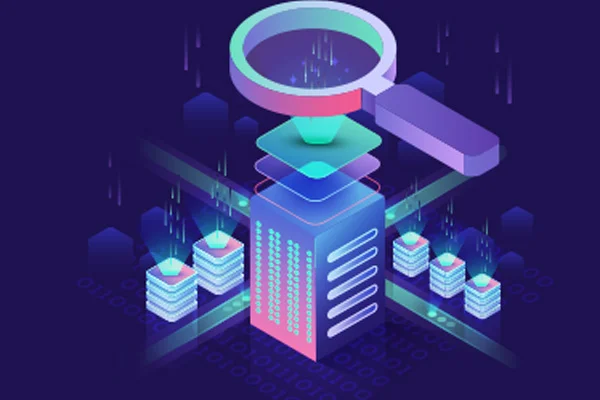Whenever chaos engulfs a proprietary technology that millions of people rely on, the default knee-jerk reaction of many seems to be: “Let's see what the open source world has to offer.. "
Case in point: the steady disappearance of
This scenario became all too familiar throughout 2023, as established technologies that millions of people rely on hit a chaos curve, making people realize how indebted they are to a proprietary platform upon which They have little control.
The OpenAI fiasco in November, where hitmaker ChatGPT temporarily lost its co-founders, including CEO Sam Altman, created a whirlwind five days of chaos that culminated in Altman's return to the OpenAI hot seat. But only after companies that had built products on top of OpenAI's GPT-X large language models (LLMs) they will begin to question the prudence of betting everything on OpenAI, with “open” alternatives such as the Llama de Meta family of LLMs well positioned to capitalize.
Even Google apparently recognized that “open” could take precedence over “proprietary” AI, with a leaked internal memo written by a researcher who expressed fears that open source AI was at the forefront. “We have no line of protection, and neither does OpenAI,” the memo states.
Elsewhere, Adobe's $20 billion bid to buy rival Figma (a deal that ultimately fell through due to regulatory hurdles) was a boon for open source Figma rival Penpot, which saw subscriptions surge in amid a mad panic that Adobe might be about to unleash a corporate downpour at the proverbial Figma parade.
And when the cross-platform game engine Unity introduced a controversial new fee structure, the developers went crazy and called the changes destructive and unfair. The fallout caused Unity to make a quick turnaround, but only after a large portion of the developer community will begin to analyze to its open source rival Godot which now also has a commercial company that drives central development.
But while all this helped highlight the eternal struggle between the sphere of open source and proprietary software, the struggles in The open source community was once again laid bare for all to see, with proprietary companies often being the root cause of the uproar.
The (not so) open source code
In August, HashiCorp change its popular “infrastructure as code” software, Terraform, from a “copyleft” open source license to the commercially available source license (BSL or sometimes BUSL), which imposes greater restrictions on how third parties can commercialize the software, particularly where it could compete with HashiCorp itself. The reason for the change? Some third-party vendors were profiting from Terraform's community-driven development without giving anything in return, HashiCorp said.
This led to a vendor-led faction forking the original Terraform project and making it OpenTF-only, eventually rebranded as OpenTofu with the help of the Linux Foundation as a governing body. While HashiCorp was perfectly within its rights to make the license change and protect its business interests, it also created uncertainty among many of its users. According to him manifest from OpenTofu:
Overnight, tens of thousands of businesses, from one-man shops to Fortune 500 companies, woke up to a new reality in which the foundations of their infrastructure suddenly became a potential legal risk. The BUSL and the additional use grant written by the HashiCorp team are vague. Now, every company, vendor, and developer using Terraform has to ask themselves whether what they are doing could be construed as competitive with HashiCorp's offerings.
Of course, HashiCorp is far from the first company to make such changes. The Application Performance Management (APM) Platform Sentry has changed from open source to 3 clause BSD license in 2019 for reasons similar to those cited by HashiCorp. However, this year Sentry created an entirely new license called the Functional Source License (FSL) designed to “grant freedom without harmful parasitism,” the company said at the time. It's a bit like BSL, but with some adjustments; For example, FSL licensed products automatically revert to an open source Apache license after two years, compared to four years with BSL.
Once again, this highlighted the constant struggle of companies seeking to embrace the spirit of open source, without compromising their commercial interests.
"There has been a long history of companies with deeper pockets and more resources leveraging traditional open source companies," said Sentry's head of open source. Chad Whitacre in November. "Open source companies, regardless of license or pedantic definition, have become increasingly reliant on being backed by venture companies, for-profit companies, or, more importantly, supported by the companies that depend on their code.
And similar to Grafana before, Element transitioned the Matrix decentralized communication protocol from a fully permissive Apache 2.0 license to a less permissive AGPL open source license, forcing all derived projects to maintain the exact same license, a major impediment for commercial companies who seek to create proprietary products.
Element said the cost of maintaining Matrix, to which it makes the vast majority of its contributions, forced it at a time when other companies' business models were designed around creating proprietary software based on Matrix, without any the costs Element had to bear to maintain Matrix. "We've made Matrix a huge success, but Element is losing its ability to compete in the ecosystem it has created," the company wrote at the time.
This license change effectively meant that companies using Matrix would have to contribute their code to the project... or pay Element for a commercial license to continue using it in a proprietary product.
So, on the one hand, businesses, consumers, and developers alike have seen how betting on proprietary platforms can lead to vendor lock-in and disastrous consequences when things go wrong. But on the other hand, companies built on solid open source foundations can easily climb the ladder by changing the terms of engagement, all in the name of trade protectionism.
All this, of course, is nothing new. But the last 12 months have really highlighted both the power and dangers of open source software.




